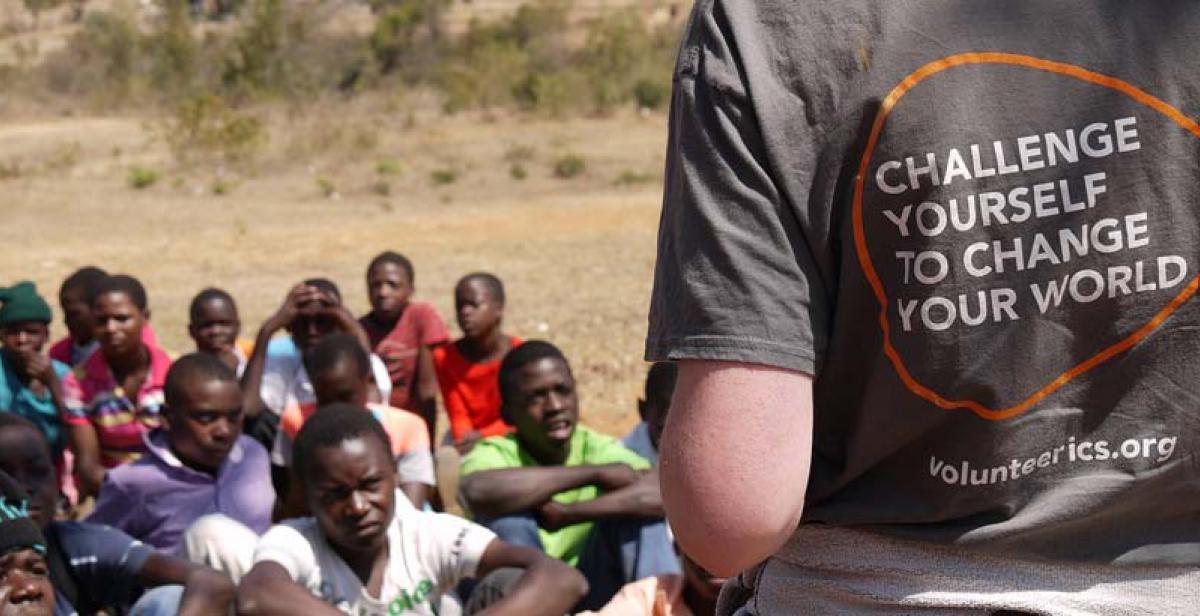Whether you want to volunteer next summer before the grad scheme or incessant job hunting starts, or to gain new skills whilst still a student, there seem to be so many companies out there prepared to offer you ‘the experience of a lifetime’. Searching the internet for volunteering opportunities can feel overwhelming - a quick Google search finds a plethora of different opportunities available. With many a placement seemingly only within reach if you have a couple of grand lying about, do not become disillusioned, as ICS is your realistic answer to an incredible opportunity that is also economically accessible.
International Citizen Service (ICS) is an overseas volunteering programme run by twelve charities, and allows 18 and 25 year olds to volunteer in Asia, Africa, Central and South America. Here is what distinguishes it as a unique programme that all students should apply to!
1) You will work with national volunteers, not just volunteers from your country
This is one of the most rewarding and valuable aspects of the programme. Working with national volunteers really makes you feel involved in the community and allows you to see things from the perspective of a national citizen of that country. Sunday visits to church with my host family showed me the importance of religion within Zimbabwe and the positive effects it had upon the community in uniting people, and allowing them to talk openly about the issues on their minds.
It also progresses and advances any work that is done on placement, as you have the ‘insider’ knowledge and awareness of potentially contentious issues that you may not necessarily have been aware of, were it not for their own knowledge of the area. You also develop on a personal level, as you have the opportunity to discuss and consider issues and ideas in a different way than you would have originally considered. This will inevitably open your mind to consider new ideas and interpretations, never a bad thing right?
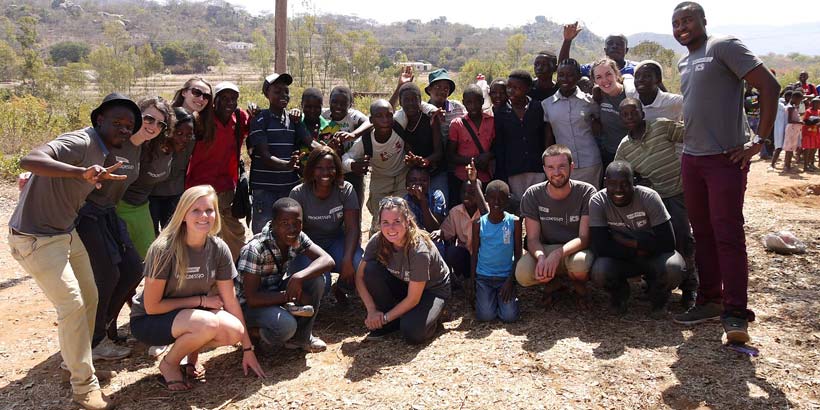
Arguably it is the easiest way to get an insight into the culture. Our cycle had so much fun learning the games and songs that are traditionally well known within Zimbabwe. Inevitably, it seems, you will also bond well with your teammates. This was perhaps, for me, one of the most satisfying aspects of the programme as I did not think I would establish such close friendships, because of culture clashes. Whilst there will inevitably be different ways of doing things and thinking that may not always meet eye to eye; the recognition that there is a common objective on the programme helps you to put things in perspective and remember what you are there for. Plus, the difference in opinion is what can make conversations and relationships so interesting whilst on placement - the proof being that a month and a half later, the group chat between us all is still going strong!
2) Host homes
Living in a host home is possibly one of the steepest learning experiences but most rewarding that you can gain from your stay abroad. Just like the programme’s integration of national volunteers, this is a unique element of the ICS programme. There is surely no quicker and easier way of breaking the ice within the local community. Many volunteers feel welcomed and more comfortable whilst adapting to their new surroundings, knowing that they have a host family who can help to ease them into their new life in the neighbourhood. 6am get ups, bucket showers, and weddings where the bride gave birth on the special day, were all unprecedented and interesting aspects that helped to make my stay in Zimbabwe all the more memorable and amusing!
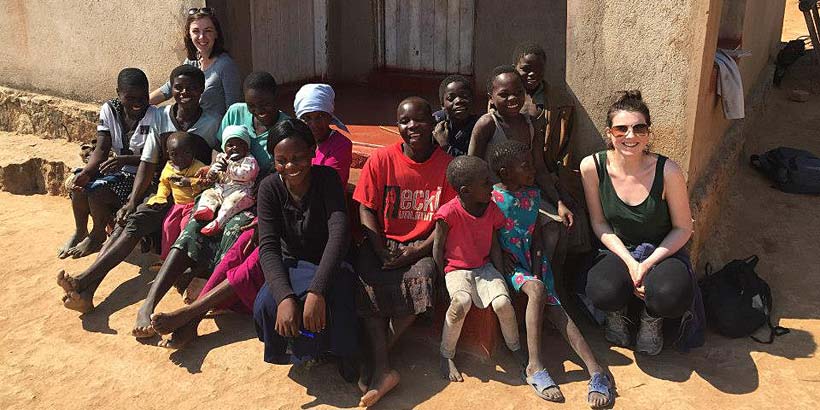
Family time
It’s also lovely to have a family unit of some kind, which makes any feelings of homesickness slightly fainter, knowing you have somewhere to call ‘home’ after a long day at work, or to rest at during the weekends.
Whilst host homes also show you the fun stuff, they can also reveal the differences in doing things, as to how you normally would at home. This can be tough at times to adapt to but is an inevitable part of your own development in adapting to new and sometimes testing situations. It gives you an insight into the life of someone living in the country that you are volunteering in. This is, in my opinion, a great help when problem solving or working within the host country, as you may view things differently if you can sympathise or empathise with the people you are helping, due to what you have experienced or witnessed in your host home.
3) ICS dimensions and roles
Cog in a wheel? Definitely not!
Whilst volunteering is not a paid job, it is important to remember you are still trying to implement change or an objective to some degree, which is just as much a job as any other, on behalf of an international organisation. This means you will be required to do your best in tough circumstances or situations often outside of what you would usually expect, a key skill in any sector of work. It is perhaps easy to fall into the role as a faceless volunteer who is just one cog in the organisation’s wheel. ICS recognises the possibility of becoming disillusioned in your own abilities or standing within the team. There are therefore a set of dimensions that you are encouraged to keep in mind when approaching new tasks and situations. Amongst these are flexibility and adaptability, and the ability to work well with others. These are helpful to keep in mind and allow one to think clearly before instantly reacting to a situation.
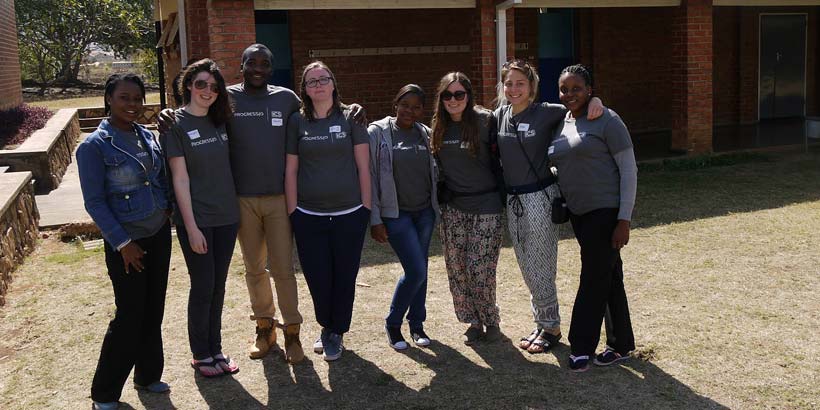
Furthermore, with Progressio ICS everyone within the team (or sub team) is assigned a role, which will individually develop their skill set and allow one to work in an organised manner towards a small area of focus, which will still ultimately contribute to the end goal. For example, a media role might require keeping those at home and the wider community updated, through Facebook, Twitter and the like, of the good work you and the team are doing. Someone else may be in charge of teaching the team about one of the target areas that ICS volunteers are tasked to pass on to beneficiaries (for our placement it was HIV & AIDS, Child Rights and Responsibilities, and Sexual Reproductive Health - but this may be different depending on where and who you are working with in the world).
4) Affordable price
Some placements are incredibly pricey nowadays, yet as ICS is government-funded, prices are relative to what is considered realistic for your average 21st century student or young person. The price ranges between £800 and £1500 and must all be done through fundraising. The price is incredibly reasonable, considering you will be flying in some cases, half way around the world, to a different continent, and staying there for 12 weeks, and experiencing a new way of life and new experiences. This includes the price of your flight, and general costs associated with the travel, with a separate stipend given out for anything else. The host families will be paid by the charity that you volunteer with for the costs of hosting you. ICS offers a lot of support in fundraising ideas and is constantly accessible by phone or social media.
5) Choice of charities
There are essentially twelve charities to choose from, all with a different approach, history and ethos, so it is a fantastic way of finding a charity that is tailored to your own interests, moral compass or views. Offering you the opportunity to develop your skills, in Asia, Africa, Central and South America, it is such a flexible option - whatever your interests may be.
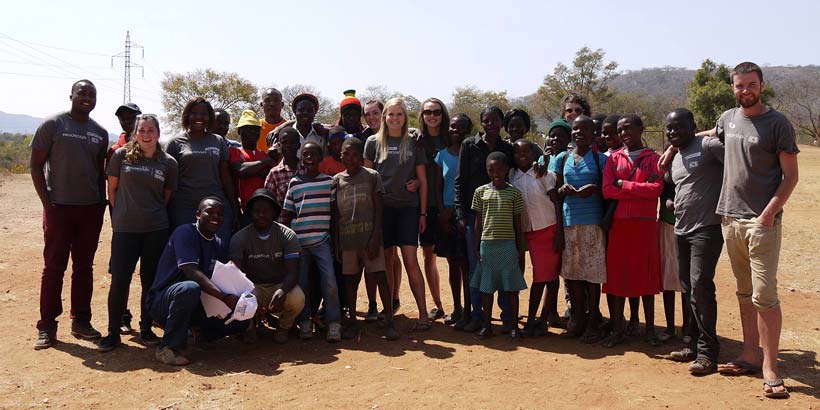
6) The approach of living within the community versus advancement in the job world
Living and working within the community will be challenging, unexpected and wonderful in ways that you could never have anticipated. There will be situations that you may never have found yourselves in, and views you would have never considered. You are getting incredible value for money and in terms of employment, will be developing your problem solving ability, ability to adapt to new situations and work with new people in different cultures, as well as finding new ways to communicate. Not everyone’s first language is English of course… in my case, making games with Shona speaking toddlers meant using an innovative approach to talking (singing) about HIV & AIDS. If you get nothing out of this (which is INCREDIBLY unlikely) know that you will be better viewed by employers who will recognise your ability to push yourself into new and interesting situations and the skills that will have come as a result of your experience.
Written by ICS Alumni Madeleine Laot (July - September 2015 cycle, Simukai Child Protection Program)


